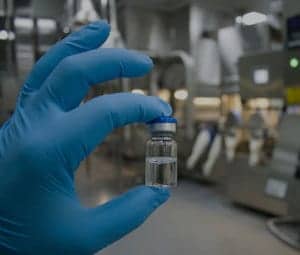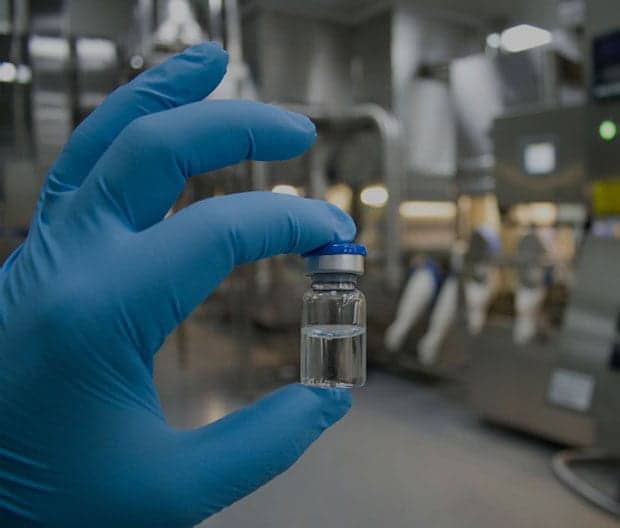
According to Auris, the HEALOS trial will evaluate the efficacy, safety and tolerability of single-dose intratympanic injections of AM-111 in the treatment of idiopathic sudden sensorineural hearing loss (ISSNHL). The trial will enroll 255 patients suffering from acute severe to profound hearing loss within 72 hours from ISSNHL onset. The patients will reportedly be randomized to receive either AM-111 at 0.4 mg/mL, or 0.8 mg/mL, or a placebo.
Auris Medical designed the HEALOS clinical trial after drug studies and multiple discussions with European and US regulatory agencies. The primary efficacy endpoint for the trial is reported to be the improvement of pure tone hearing thresholds from baseline to Day 28 at the average of the three most affected contiguous test frequencies. Auris says that HEALOS will be conducted in several European and Asian countries, involving more than 70 sites. It is the first of two trials in Auris Medical’s phase 3 clinical development program with AM-111. The second trial, ASSENT, is expected to start enrollment in North America in the first half of 2016.
“We are very excited to begin enrolling patients in HEALOS,” said Bettina M. Stubinski, chief medical officer at Auris Medical. “Sudden deafness can be a very frightening experience, especially when the hearing loss is severe or profound and accompanied by tinnitus, and chances for complete recovery are low. AM-111 has shown very promising results as an otoprotectant in acute hearing loss, and we expect the HEALOS trial to be a major milestone on our way towards the development of the first specific therapeutic for this condition.” Stubinski noted that results from HEALOS are expected for the second half of 2017.
Auris Medical reports that AM-111 contains the synthetic peptide D-JNKI-1 (D-stereoisomer of c-Jun N-terminal Kinase Inhibitor 1), an inhibitor of the JNK stress kinase coupled to an intracellular transporter. It is administered by a single dose intratympanic injection into the middle ear. From there the drug diffuses through the round window membrane into the cochlea. AM-111’s otoprotective effect has been demonstrated in various animal models of cochlear stress, including acute acoustic trauma, acute labyrinthitis (inflammation), drug ototoxicity (aminoglycosides), bacterial infection, cochlear ischemia, and cochlear implantation trauma.
Source: Auris Medical
Photo credit: GenVec





Very excited to know more details about this drug trial’s results.
I have been treating ear disease and sudden hearing loss for the past 35 years–I started the intratympanic steroid therapy in Egypt around 20 years back. I am very much interested to try this new medication by approving our centre to be one of the sites to try this new medication. How can this be approved and applied?
Hello Dr. Hamid,
To inquire about how your facility might get approved as a trial center, it’s best to contact Auris Medical directly. The company’s contact email for all inquiries is: [email protected]. The company has locations in Switzerland and the United States, listed at this link: http://www.aurismedical.com/contacts.
I wonder how this study was ever approved by an IRB. Both those getting the drug and those who get the placebo must wait 28 days, closing the door on the chance of getting steroids that might work better if or when patients don’t recover their hearing. Why are they testing this drug against a placebo instead of the usual steroids? This is a tragic loss of opportunity for anyone getting the placebo.
Are they thinking this drug can be used to help people who have suffered from ISSNHL to help restore or fix the effects of sudden loss? What about people who experienced ISSNHL in past years? Could this drug help them?
Hi Angela,
It is my understanding that this drug trial is to assess AM-111’s potential for reversing ISSNHL only in patients who receive the drug within 72 hours of onset. The drug is not currently being tested or applied in patients who have experienced ISSNHL longer than that 72-hour window, or in past years. There is certainly a need for more drug trials like this to assess therapies that have potential to reverse hearing damage, or even prevent it, as discussed in an HR article about the work of Kathleen Campbell, PhD (https://hearingreview.com/2014/11/dr-campbell-updates-ada-attendees-otoprotective-agents-currently-approaching-clinical-trials/). Thanks for your comment!